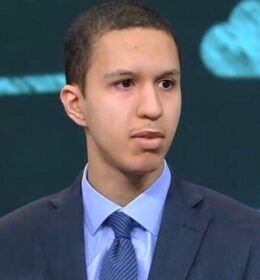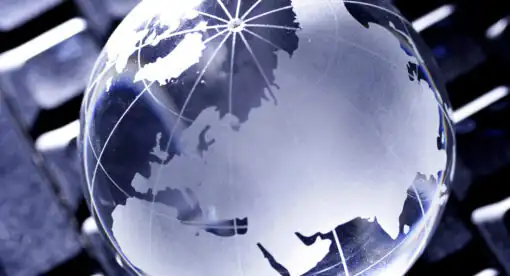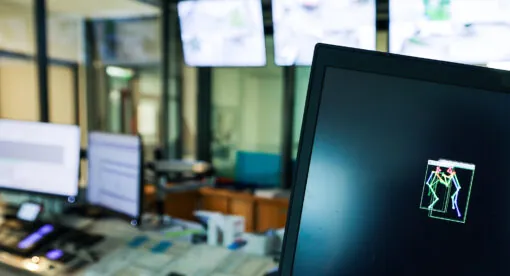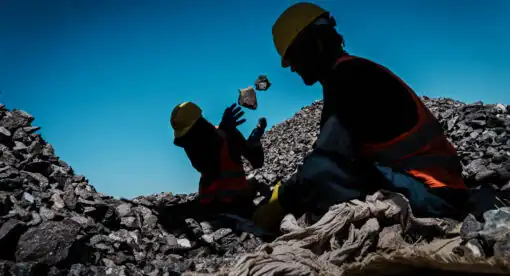In today’s episode of the Contours podcast, host Carolyn Morman talks with writer and New Lines contributor Abdulaziz Kilani. Together, they discuss how Israel’s war in Gaza is affecting relations with its neighbors, the role America plays diplomatically in these changes, and how the Palestinian question may be addressed in the future.
Carolyn Moorman:
Hello and welcome to the Contours Podcast from the New Lines Institute for Strategy and Policy. This is your host for today’sepisode, Carolyn Moorman. We’ll be discussing the ongoing Gaza War between Israel and Hamas, and specifically how regional stakeholders are reacting to this conflict and their relations with the U.S. I’m joined by Abdulaziz Kilani a London-based journalist and writer who focuses on developments in the Middle East and North Africa. He recently wrote a piece for New Lines titled, “The Implications of the Gaza Israel War for U.S.-Jordanian Ties.” Since Hamas’s October 7th attack on Israel, the Israeli-Hamas conflict has greatly risen to new levels. Israel has targeted Hamas throughout the Gaza Strip, with all eyes now on Rafah, as Israel has been attempting to conduct operations to go after remaining Hamas leadership. Tel Aviv claims it’s hiding in tunnels underneath Rafah, stirring dismay.
The international community has been highly critical of these operations due to all the Palestinian civilians throughout the Gaza Strip, and have been claiming shelter in international NGO-run refugee camps. In an incident a couple of weeks ago, Israel fired on a Hamas position via an air campaign, caused a fire, and this killed about 45 Palestinian civilians and sparked global outrage. The U.S. has been facing domestic and international blow back for its backing of the Israeli government, and the Biden administration has been slowly increasing its willingness to rhetorically apply pressure on Tel Aviv, to protect Palestinian civilians and to protect and to provide adequate humanitarian aid. Another important thing to flag before we begin this episode, is that a recent ICC decision to issue arrest warrants for select Hamas and Israeli government officials has happened, as well as Algeria calling for the UNSC to enforce an ICJ ruling regarding Israel.
Lastly, for the past couple of weeks, the Biden administration has been trying to generate support for a cease-fire plan to come up with, that Abdulaziz and I will be discussing today. The plan has multiple stages. First, a temporary cease-fire for six weeks, during which a flood of humanitarian aid will enter the strip, Israel will withdraw from populated areas. Hamas will release most hostages, and Israel will release women and children. The second phase would include a permanent cessation of violence. Hamas would return the remaining hostages. Israel would completely withdraw from Gaza, in their third reconstruction phase. The plan passed the security council a couple of weeks ago with only one abstention via Russia. Hamas is still trying to change this plan even though both sides have expressed interest. Blinken has been wanting Arab countries to put pressure on Hamas, but Hamas says the U.S. is to blame. And with that, I’d like to turn to Abdulaziz to start our conversation about Jordan. As I mentioned, you recently wrote a piece for New Lines about Jordanian-U.S. relations. We know Jordan borders the West Bank. They hold over 2 million Palestinian refugees and they’ve been very active in advocating for a cease-fire. At a high level, what are Amman’s main concerns with the current state of the conflict?
Abdulaziz Kilani:
Well, first of all, Carolyn, it’s great to be with you. Thanks for having me. I would say prior to the conflict, Jordan was already dealing with a number of challenges on the smuggling and of weapons, and drugs over exporter with Syria. That’s one thing that Jordan has been dealing with. Over the recent periods, over the past several months, we have seen more than an operation that attempted to foil these attempts. That’s on one front. On the second front, a few years back. If we go to 2021, Jordan seemed to be a coup attempt or if you recall, the sedition, as it has been described. It involved the former crown prince of the king’s own half brother, Prince Hamzah bin Hussein. On the economic front, it’s not a secret that economy is a great threat to Jordan’s stability. We’re talking about a country that has limited natural resources, that has food insecurity, water stress, budget deficits.
There’s a lot going on the economic front. And those factors would’ve worsened over the past, let’s say 10 or so years for different reasons. One of which is the hosting of refugees from war zones such as Syria and COVID-19, and its implications of course on the global economy. The war in Ukraine had its own portion, in my opinion, in impacting Jordan’s economy. And even as you know, Jordan relies on foreign assistance from various countries, one of which is Saudi Arabia. Now we know that Jordan withdrew its support to the Saudi intervention in Yemen, and did not fully sever ties with countries such as Qatar, with Qatar during the Gulf crisis, which makes you wonder if there was any implication in delaying some of the Saudi aid or investments to Jordan as a result of the Kingdom’s approach to the Gulf crisis.
In light of all of this, so the country was already dealing with a lot, now with the Gaza War, we do have what would be legitimate, what would be seen even by other countries other than Jordan, as legitimate concerns for Amman. One of the concerns would be, for instance, related to Hamas’ popularity, and we have seen an increase in that in Jordan. We have seen a number of protests against the Israeli attacks in Gaza and the Israeli approach to the conflict. Now, with no doubt, Hamas would’ve tried to take advantage of that to increase its popularity. There was a speculation a few months back amongst some observers and others in Jordan, on whether the parliamentary elections this year might be postponed. But it isn’t and it has been confirmed that it will be held this year. The refugees is another major concern for Jordan. Jordan refuses for the Palestinian-Israeli conflict to be settled at its expense, refuses the idea of changing the status quo regarding the conflict.
Now, yes, it started mainly in Gaza, but there has been concerns over whether the West Bank might be next and witness a surge. And of course on the economic factor, Jordan will continue to have concerns over. We have seen the decline of tourism, for instance, soon after the attack. We have seen the Red Sea escalations resulting in impact on trade. So, Jordan will continue to have concerns over its economy as a result of the Hamas-Israel conflict. So there are various concerns for Amman, and this is why for Jordan, it’s a priority for a cease-fire to end this conflict, to prevent it on having further regional implications.
Carolyn Moorman:
Of course. And I think it’s really important as you laid out all of the challenges that Jordan was dealing with before this, that were very much exacerbated by the conflict in this continual evolution in the region. And I’m also curious about how you foresee the effects of the conflict on the Jordanian-U.S. relations. As I mentioned, the region has been very reactant to the U.S.’s strong backing behind the Israeli government in its conflict. And so I’m wondering how much has this strained U.S.-Jordanian relations? We know that when King Abdullah visited Washington in May last month, the cease-fire topic was very, very prevalent in his conversations with Biden, specifically in regards to U.S. relations with Jordan. Jordan currently hosts a couple thousand U.S. troops to protect against ISIS and pro-Iran militia attacks. These troops also play a really important role in U.S. activities in Iraq and Syria for Operation Inherent Resolve. Do you see any kind of long-term ramifications for U.S. force posture in Jordan because of the Gaza War and any kind of blowback due to the U.S.’s support for Israel, on the U.S.-Jordanian relationship?
Abdulaziz Kilani:
Well, on the U.S.-Jordan relationship, I think the arrival of the Biden administration created some sort of relief for Jordanians. As during the Trump years, Jordan might’ve felt that its regional role has been marginalized, especially with what seemed to be an unconditional support from President Donald Trump to other countries such as Saudi Arabia. So the arrival of the Biden administration, we’ve seen King Abdullah II being the first Arab leader to visit Washington after Biden assumed office. So, I think what’s going to be happening over the coming months is the question of, what if Trump wins again? What does that mean again for the U.S.-Jordan relationship? But another topic than the U.S. troops existence in Jordan and suddenly regarding the troops, we’ve seen few months back, the attack on the Tower 23 outpost in Jordan. And that has brought attention again to the U.S. presence in the kingdom. And reiterated calls on the government to review these troops’ presence in Jordan.
Personally, I think over the foreseeable future, I don’t see that being changed. I don’t see a major development such as the withdrawal of U.S. forces from the kingdom. I think from both Jordanian and U.S. perspective, the presence of those troops in Jordan is important. So Jordan would view it as important in terms of protecting the kingdom regarding its border threats, etc, etc. So yeah, over the long term I don’t see a change on that front. Obviously, while there might be no change, the United States would not want to leave a vacuum should it leave the region. We do know that those pro-Iran militias are eventually hoping for a withdrawal of the U.S. forces from the region. Now, if that happened, that vacuum would then raise questions about, is it going to be Russia? Who’s it going to be? And there’ll be consequences for that.
And the last thing the Biden administration would, or even over the long term any U.S. administration would want to do, is to reinforce regional concerns about the U.S. commitment to the region we’ve seen. In 2019, for instance, if you remember the attack on the Aramco facilities, the U.S. response to that reversed what was known once as the Carter Doctrine and where the U.S. would intervene if needed to protect the oil fields from an external attack or an external threat. And we have also seen the withdrawal from Afghanistan as well, as another move that would’ve reinforced those concerns among Gulf partners and maybe others about the extent to which the United States is willing to continue its security commitment to the region. So in short, that’s why I don’t think there might be a significant change regarding the U.S. presence. And Jordan, and as you said, yes, they do play an important role regarding these missions in Iraq and Syria.
Carolyn Moorman:
Of course. And I think it’s really important that you flagged the regional concerns about an aftermath of U.S. presence in the region on the ground in Iraq and Syria. Whatever that would look like, would leave some sort of vacuum that could be covered by maligned forces. And that’s a major concern, and it’s something that the New Lines’s Post-Withdrawal Project is putting a lot of thought and effort into with pieces like this, and products like this. And I also want to draw our attention to the back and forth that we saw between Israel and Iran in April, and in Iran’s counterattack on Israel after Israel conducted a targeted killing of an IRGC general in Damascus. Of course, not claiming it did it, but the world assuming that it did, Iran responded. And during that response, Jordan actually intercepted some of the missiles and drones that were going through its airspace towards Israel. Do you think we can connect this in any way to a willingness of Jordan to stand up against Iran in the defense of Israel or is this plainly a part of Jordan protecting its airspace and its sovereignty? And there have even been calls with Jordan as you mentioned, due to the rising popularity of Hamas within the country, for Jordan to cancel its peace treaty with Israel, do you think these are probable concerns or do you think U.S. pressure on Jordan would stop something like this from happening?
Abdulaziz Kilani:
Well, in regards to Iran, I think Jordan would not want to be involved like many others in the region to be caught in the middle of any Israeli-Iranian escalation. And the king was clear on the kingdom not being a battlefield in that sense. So, I don’t view it. I know that some social media activists would’ve portrayed it as a defense of Israel, but I don’t look at it that way. I look at it as the kingdom is entitled to protect its sovereignty, and I don’t tie it as standing up to Iran as much as I tie it to Jordan trying to distance itself and being caught in regional escalations. And this is perhaps one reason why Jordan was advocating all along for a cease-fire because you can see, even prior the Iranian attack on Israel, that it was coming and we’ve seen many news reports almost predicting when it’s going to be coming and it’s happening soon.
And we know it was in retaliation to the Israeli attack on the consulate in Damascus, earlier on the same month. Obviously the Israeli response was, in my opinion, tailored to not provoking another Iranian attack because if the Israeli response was a major one, that will perhaps place more pressure on the government in Iran, okay, we do need to respond again. But it ended the rounds of the tit-for-tat. And in regards to what you mentioned about the Jordan-Israeli peace treaty, I think the bar of that remains to be very high and I don’t think it has been met yet. Yes, we do know that during the conflict there was the call of the ambassador to come back in Israel, the Jordan ambassador to come back. But until today, I don’t see the signs that Jordan is going to end or revoke its peace treaty with Israel anytime soon.
Jordan is aware that such a move would first of all, may place at risk the assistance it receives from Washington, which brokered the deal. Jordan’s also realizing that, well, for long, Jordan realizes that it will benefit from the water cooperation that’s happening between the two countries. As I mentioned in the beginning, that Jordan suffers from a water stress. So I would say that’s another point that would make Jordan hesitant to revoke the treaty. And also as mentioned by the piece that was published in New Lines, that could be taken as a move to undermine Jordan’s roles as the custodian of Islamic and Christian holy sites in Jerusalem. So, there are multi fronts in which to indicate that revoking the peace treaty is not necessarily going to do good, at least on the short term for Jordan. And this is why the government may prefer to use the treaty as a leverage rather than revoke it and deal with upcoming scenarios that might undermine Jordan important role regarding the conflict.
Carolyn Moorman:
Absolutely. And another country that has been incredibly prevalent in the cease-fire negotiations and all of the regional politics trying to bring this conflict to a pause or an end, has been Egypt. Also sharing borders with Israel, directly touches Gaza. The largest concern for Egypt most people believe is that Egypt doesn’t want more refugees. They already have a very large number of Palestinian refugees, and there are rumors that certain figures in the Israeli government, certain right-wing figures would love to put more Palestinians from Gaza into Egypt. So I’m wondering in your view, how big of a concern for Cairo is this?
Abdulaziz Kilani:
Well, in regards to Egypt, we do know that unlike others, historically Egypt did accept Palestinian refugees, notably in 1948 and in 1976, following as a result of the war. We do know that the estimates are that there are around between 70,000 to 135,000-plus Palestinian refugees in Egypt. But looking at the situation today, I think Egypt has realized over the years that it’s no longer like back then, in other words, Egypt would not want to be seen as undermining the identity of the Palestinians by having more Palestinian refugees in its Sinai Peninsula. We’ve seen President Sisi being clear on the issue of refugees and Cairo was clear on that matter. And Egypt and other nations like Jordan, they don’t want to be seen as allowing a second Nakba, like the one that happened in 1948. They do not want to revive some of the ideas that came in such as of a three state solution. Israel would be like, okay, Gaza can go to Egypt’s control, some parts of the West Bank can go to Jordan’s control.
And despite this idea might seem unrealistic, I do believe that some Egyptian officials would’ve seen that over the years that there are at least some elements within the Israeli establishment who might be in favor of such an idea. And the concern would be for Egypt, what if there were among these refugees, any Hamas members? Now we do know what Egypt’s stance is on the Muslim Brotherhood. We do know how the relationship has been over the years. So, Egypt would have those concerns about allowing such elements to enter its territory. And of course the operation in Rafah would’ve further increased Cairo’s concerns because we’ve seen escalations that would make Egypt, despite any reassurance Cairo might have received from other nations, such as the United States, Cairo would’ve just felt, okay, the threat is now becoming higher, which made it clear in terms of being firm about the idea of accepting more refugees. And if you remember a few months back in one of conferences of the Jordanian monarch, King Abdullah II, he was clear that no refugees in Jordan, no refugees in Egypt. So there is mutual agreement on the stance of hosting more refugees.
Carolyn Moorman:
Absolutely. And I think it’s important to flag that another area of discord between the Israeli government and Cairo in addition to this threat of refugee flow, is that a couple of weeks ago the IDF got operational control of the Philadelphi Corridor, of course, this little strip of land in between Gaza and Egypt, and the IDF has said that they did this in order to tackle smuggling networks that Hamas uses to get supplies from Egypt into the strip. And Egypt has said that an increase of troops here would violate the 1979 peace accord, but has been, some people say a little tight-lipped, about this operation and this specific development. Do you see this or anything else as generating a red line for Cairo that it will have to respond to in a more robust fashion? Or do you think that the U.S. is applying pressure in this area, or do you think something else is happening behind the scenes to make Cairo be so tight-lipped about this?
Abdulaziz Kilani:
Well, yes, as you mentioned quite rightly, we have seen for the first time since 2005, the Israeli forces moving into the eastern side of the border. Now the Philadelphi Corridor is a 14 kilometer-long area, and it’s also known as the Salah al-Din Corridor, which is within a buffer zone under the 1979 Egypt-Israel Treaty. I don’t see Egypt revoking the peace treaty now with Israel. Now, Egypt was clear about it would constitute a red line if Israel did 1, 2, 3, but I don’t know the extent to which Cairo was clear about how it might necessarily respond to what it views as red lines. I would say, if you recall in 1982, there was a dispute over Taba, and it was at the time that we dispute settlement provisions that dealt with it. I would say any violations that occur now over the short term in regards of the Cairo-Tel Aviv treaty, might be dealt with that way.
Like Jordan, I don’t think Cairo would want to risk worsening its relationship with the United States or the assistance. I think Egypt would want to be keen in maintaining the bilateral ties. And also I think Egypt is aware that its relationship with Israel will be important for post the conflict. There will be the issue of reconstructing Gaza and all of that. Cairo is a key player in the region and in the conflict. So, its ties with Tel Aviv will be important in coordinating and perhaps finding a roadmap or deciding on the upcoming steps on what might happen next after the conflict.
Carolyn Moorman:
Absolutely. And I want to take this and lastly, in the final part of our episode, move towards another regional giant, which is Saudi Arabia. So a lot of attention, particularly beyond the Gaza War, is going to this ongoing trade and defense deal that’s happening between Riyadh and Washington. And the deal is supposed to improve the kingdom’s defenses against Iran and giving the kingdom U.S. help with civilian nuclear infrastructure, while also increasing ties between the U.S. and the kingdom’s tech industries. There’s been a lot of aspects of international relations regionally, that have been touched by the Gaza conflict. Riyadh on its part, has been arguing for forever, that steps have to be made towards a Palestinian state, and there’s always been this as the stating set before the kingdom would consider normalization with Tel Aviv. And statehood is now also being brought up with this defense deal. Do you see this as some rhetoric tool that the kingdom is using to assuage its domestic audience or do you see this as something that actually has a likelihood to be addressed in the immediate future? How do you view this?
Abdulaziz Kilani:
Well, first of all, we do know that on the recent reports and what’s been emerging from the media, that the U.S.-Saudi defense deal is around the corner. There seems to be progress on that front. Now, in regards to what’s going on today, I think it’s up to the main two countries, Saudi Arabia and the United States, to what extent they would want other countries such as Israel to be involved in this. I think the defense deal holds positives for both countries in the sense of improving the relationship between the two and strengthening it. We do know when Biden took office, the relationship wasn’t necessarily as great as it has been during the Trump years. That sort of unconditional support seems to have decreased. We have seen even prior to Biden’s victory, his stance on things such as the war in Yemen and his promise to end the war, or even the Democrats’ stance on the murder of the Saudi journalist Jamal Khashoggi in his country’s consulate in Istanbul in 2018.
So, it was certainly a change in terms of who’s going to be in the, who is in the White House, for the Saudis. Now this deal, if it goes ahead, it will certainly shore up that ties between the two countries. Now, nevertheless, we have seen over the past few years that Saudi Arabia has been adopting a de-escalatory stance, and we have seen that not only with Iran but also other countries such as Turkey, for instance. Something that also the Emiratis and we’ve also seen them doing over the past few years in terms of adopting de-escalatory stance. And one fear for the Gulf partners would’ve been, is not to be also again, caught up in the middle of the current conflict. We’ve seen in April, that there has been reportedly countries such as Saudi Arabia would’ve denied U.S. and Israeli requests to open their air space during the tit-for-tat Iran-Israeli confrontation.
Now, in my opinion, this emanates from their concerns about what would be the implications on them should they have been involved. Would the defense deal currently, I think as beneficial as it is for the bilateral ties, maybe one question to raise or bear in mind, what would this mean for Iran, for instance? Would Iran feel threatened and feel that Tehran would need to do something similar by for instance, I don’t know. Making a similar deal with countries such as Russia or China? So, that’s another thing to bear in mind on that front. In regards to the current Gaza conflict, I think the Saudis would want to see an end to the conflict like other countries in the region. They would want to see a cease-fire. They know that the prolonging of the conflict, as I said, might result in further regional implications that might put them in an uncomfortable position.
They have been adopting a balancing act approach. The Saudis were clear about the Palestinians and what’s going on in terms of what they view as they’re suffering, but also they would not want to jeopardize the relationship with the United States or even the prospects of a normalization deal with Israel. So, walking that high wire is not necessarily an easy one to do, but for certainly the Biden administration, if there is a breakthrough, that would be important for Biden’s policy in the region and it would mark an important landmark, especially before the U.S. presidential elections.
Carolyn Moorman:
Yeah. That final point you made about the way that the entire region is going to probably play into the U.S. elections and how a potential deal between, any kind of movement on a deal between Saudi and the U.S. would be consequential, and how things play out in November in the U.S. and how that has ramifications for the region. In closing, this is just a top of the line thought, but it’s been a trend that for some while analysts see Arab countries and regional stakeholders forgetting about Palestine, their engagements with the U.S., Israel. I’m thinking about the Abraham Accords. I’m thinking about some of these other developments in the past couple of years. Do you think that since October 7th and this ongoing conflict in Gaza, that this has changed the calculus and that long-term we’ll see more of the Palestinian question coming into mind when policy is made for Arab countries with the U.S. and Israel?
Abdulaziz Kilani:
Yeah, I do agree with you, Carolyn. I think over the past several years, there has been indeed the question of the importance of the Palestinian calls for those countries. And if you want to compare, for instance, the stance of Saudi monarchs such as King Faisal, to before the October the 7th, and the current Saudi leadership stance on the Palestinian calls. Yes, the support is there, but it is very much different. So I think the October the 7th, yes, as you have said, quite right would’ve changed that trend, why perhaps is one of the key questions. And I think it’s one of the reasons for that is, this is one of the worst escalations we have seen between Hamas and Israel, if not the worst one. And we have seen it’s no longer something that is solely between just Hamas and Israel. We have seen regional implications that made those countries worry about the extent to which they are going to be suffering as a result of the war.
So, yes, there might be greater attention to the Palestinian-Israeli conflict by those countries in the future. Obviously, their concern would remain to prevent or come out of the conflict with the least consequences for themselves because understandably, they do want to protect their own national interests after all. So, this is something that we will see over the coming years following the conflict and see the extent to which they will be involved. But certainly one thing they might want to see is not a repetition of what happened over the past several months, in terms of an escalation that would’ve placed many of the United States’ regional partners, whether we’re talking here about Saudi Arabia, Jordan, Egypt, etc, placed them to varying degrees at an awkward position where each one of them would’ve had their own concerns regarding the conflict.
Carolyn Moorman:
Absolutely. And it is great to hear more agreement that this Palestinian question is probably going to come into the forefront of issues now in regional developments. Abdulaziz, I want to thank you so much for coming onto Contours today. To our audience, please give a read to his piece called, “The Implications of the Gaza Israel War for U.S.-Jordanian Ties.” If you liked this conversation, there’s a lot of great analysis in there that plays into how the region is looking at the war, and specifically how the U.S. and Jordan will probably take this war into their ties going forward. You can subscribe to the Contours podcast series wherever you get your podcasts, and you can also check out further analysis into geopolitics at www.newlinesinstitute.org. Thank you so much for listening, and have a great day.






